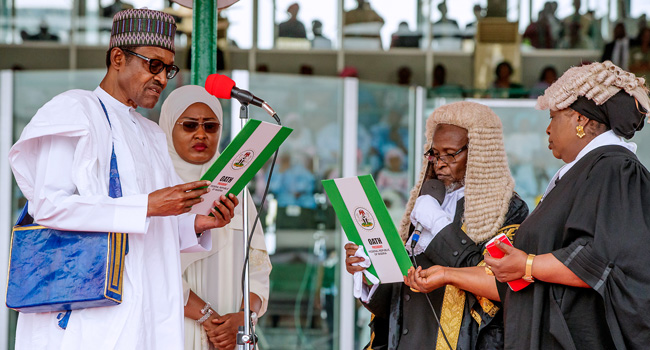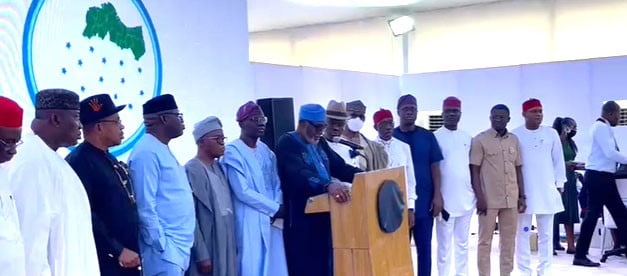Governor Babagana Zulum of Borno State has reechoed calls for power to shift to the southern part of the country
The southern governors had during a meeting in Lagos on Monday agreed that the region should produce Nigeria’s next president based on the principles of equity, and fairness, an assertion Zulum also corroborated.
“I have said it times without number that I, Professor Babagana Zulum, I am of the view that the presidency should go to the south in the year 2023 because the unity of our country is very important,” the governor said during an interview on Channels Television’s Sunrise Daily on Wednesday.
“Secondly, inclusivity is very important. Thirdly, I am in the APC. Six or seven years ago, APC had zoned the presidency to northern Nigeria based on the agreement that in the year 2023, the presidency should go to the south.”
‘This Is Politics’
The governor admitted that the southern leaders have the right to call for power shift to the region but faulted those insisting that the zone must produce the next Nigerian leader.
“But again, this is politics. We are supposed to meet and discuss this issue among ourselves, among the political class,” he explained, as he called for caution so as not to overheat the polity in the lead-up to the 2023 polls.
“This statement that people are saying that the president must go to the south, I want them to remove the word must.”
He also refuted speculations that his stance on zoning was due to his political interests.
“And I have said it before, I am not interested in becoming the vice president of the country, neither the president of the nation but I want to say the right thing,” Zulum added, doubling down on his earlier stance.
A Hotly-Debated Policy

Since the return of democracy in 1999, Nigeria has had an unwritten agreement for the rotation of power between the largely Muslim northern region and the Christian-dominated south.
Incumbent President Muhammadu Buhari who hails from the northern state of Katsina is expected to hand over to a president from the south in 2023 in line with the rotation principle.
The arrangement which is often referred to as “zoning,” continues to draw intense debates from political leaders in the country.
Critics believe the policy is outdated, undermines democracy, and panders to ethnoreligious sentiments.
“I am not an advocate of zoning, [but] I understand why those who feel marginalized will want that to happen.” said, Kayode Fayemi, the governor of the southwestern state, Ekiti, who insisted that “excellent Nigerians come from all parts of Nigeria”
But proponents of the zoning principle, argue that the power-sharing deal has helped in boosting unity among regions in Africa’s most populous nation
CHANNELSTV



